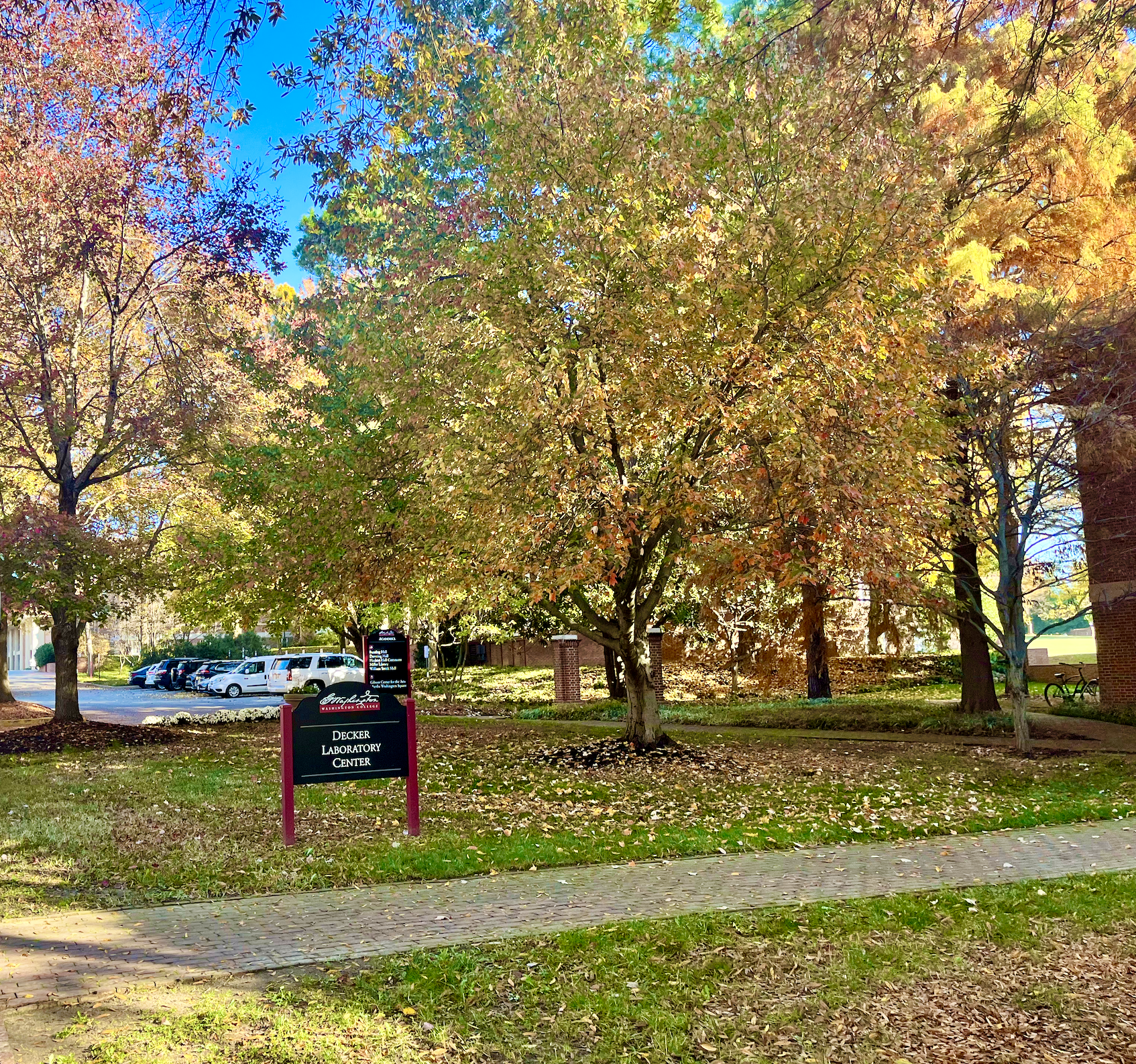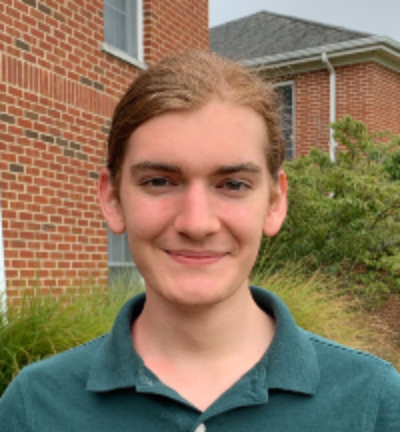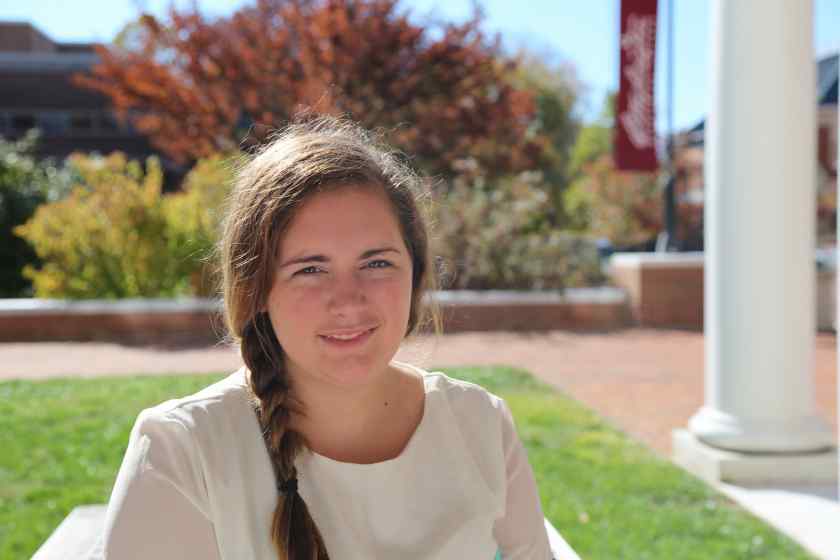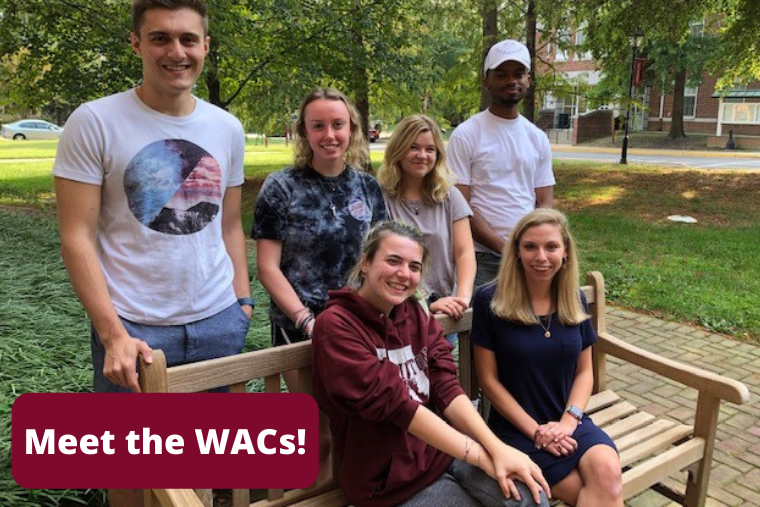
Clinical Counseling
Students taking the Clinical/Counseling concentration are provided with the knowledge and skills needed for graduate clinical/counseling work as well as entry level positions in schools, rehabilitation facilities, research institutes, and mental health hospitals. Our emphasis on critical thinking teaches students to…
- Speak and write clearly
- Analyze data and effectively interpret findings
- Create logical, professional-level presentations
About the Clinical/Counseling Program
In 1999, the first year of the program, we had 5 Clinical/Counseling graduates. We now graduate about 20 each year. Half of all Psychology Majors are Clinical/Counseling concentrators.
Students learn research and clinical skills typically taught in master’s level programs. Both diagnosis and treatment are emphasized through hands-on engagement.
Supervised internships are plentiful. We encourage eligible students to complete two credit-bearing internships to gain experience in practical settings so that they have direct interaction with clients. See internship page for more.
Clinical/Counseling students have access to biofeedback equipment and other psychophysiological tools that reveal how physical measures are affected by psychological variables.
Counseling sessions are simulated, and feedback is provided for personal development. Guided by a faculty mentor, students have opportunities to become more self-aware, more perceptive of nonverbal communication, and more appreciative of diversity.
Students can learn to administer psychoeducational tests, including motor tasks and measures of achievement, intelligence, language, and visual perception.
Close training in clinical report writing is regularly offered.
Students are invited to take a full year of psychopathology which allows for deep explorations regarding the etiology, symptoms, and treatments of a large variety of behaviors and diagnoses.
All students work closely with a faculty member on a senior research project involving some aspect of diagnosis or treatment that is of interest to the student. By graduation, most students have worked on at least one additional project with a faculty member and played a role in presenting the findings at a regional psychology conference.
Our graduates are accepted to graduate programs in clinical psychology, counseling psychology, social work, public health, school psychology, occupational therapy and related fields. Some students immediately go on to positions as clinical researchers, residential counselors, therapeutic assistants, and careers in education and child care administration.
Meet the Concentration Coordinator

Dr. Lauren Littlefield
Professor of PsychologyPSY 394. Group Processes
PSY 410. Human Neuropsychology with lab
PSY 433. Child Assessment with lab
PSY 490. Internship
meet Prof. LittlefieldConcentration Requirements
Students need to have an understanding of basic biological, chemical, and/or physical science in order to have greater context for evaluating psychological phenomena. Students must take one of the following sequences:
- BIO 111 and 112. General Biology
An introduction to living systems. Topics studied include biomolecules, cell structure and function, metabolism, genetics, molecular biology, diversity of life, physiology of plants and animals, evolution, and ecology. Lectures on selected topics will be supplemented with problem-based learning opportunities as well as discussions of current events and selected papers from recent scientific literature. The laboratory complements the lecture and provides an introduction to experimentation and communication of experimental results. Students also conduct an independent research project. Opportunities to attend research presentations and visit outside research facilities are provided. - CHE 120 and 140. Chemical Principles of Organic Molecules AND Reactions of Organic
Molecules
Provides a foundation in the fundamental principles of chemical structure and reactivity of organic molecules. Key topics in CHE 120 include atomic and molecular structure, intramolecular and intermolecular forces, organic functional groups, thermochemistry, acid/base equilibria, kinetics, and basic organic reaction mechanisms. Key topics in CHE 140 include the reactivity of organic molecules, including aliphatic and aromatic hydrocarbons, their halogenated derivatives, and molecules containing heteroatoms such as oxygen, nitrogen, and sulfur, alone or those incorporated in biologically relevant molecules. - PHY 111 and 112. General Physics
A calculus-based introduction to physics for further study in the physical sciences and engineering. Mechanics: kinematics and dynamics of particles, conservation laws, the law of universal gravitation, oscillations, and fluids. Thermodynamics: internal energy, heat, work, 246 Physics entropy and their statistical foundations. Waves: wave propagation, superposition, interference, and physical and ray optics. Electric and magnetic fields: Coulomb’s law, Gauss’s law, electric potential, steady currents, magnetic forces, Ampere’s and Faraday’s laws
Students must complete the six core courses required for every psychology concentration. These courses cover an introduction to general psychological concepts, methodological practices in behavioral sciences, and evaluation of inferential statistics
- PSY 111 and 112. General Psychology
An introduction to the scientific study of behavior and mind, embracing all aspects of human experience. Topics include the anatomical and functional organization of the nervous system, consciousness, learning, memory, development, emotion, social interactions, psychopathology, and society and culture. This course surveys the methods and major findings of the various fields of psychology. PSY 111 introduces the student to the cognitive, neurological, and biological aspects of psychology in addition to basic research methodologies. PSY 112 covers the clinical/counseling, developmental, personality, and social aspects of psychology. - PSY 209. Statistics and Research Design I
Consideration of sampling theory, the design of experiments, and the analysis and presentation of data with emphasis on correlation, t-test, chi square, and the analysis of variance. A significant portion of the course is devoted to instruction in SPSS, a computer based statistical package. - PSY 309. Statistics and Research Design II
A survey of appropriate research designs employed in psychological research. Emphasis will be on inferential statistics such as regression, analysis of variance, and appropriate a priori and post hoc test of significance. - PSY 399. Junior Seminar
This required 2-credit course, normally taken during the second semester of the junior year, teaches foundational skills essential to psychology as a professions, such as ethics certification, writing in the discipline, and proposal development. By taking this seminar, students will have the opportunity to clarify achievement goals and develop academic and career plans. - PSY SCE. Psychology Senior Capstone Experience
Students majoring in psychology satisfy degree requirements by completing either an empirical research project or a theoretical review paper.
Students must conplete four (4) of the following courses:
- PSY 202. Lifespan Developmental
This course will provide a broad overview of human growth and development from infancy to old age. Changes in biological, cognitive, emotional, and social domains will be discussed at each period of the lifespan. Topics will include heredity, learning, emotional development, temperament, attachment, gender development, developmental disorders, peer relationships, families, and aging. Recent research and current issues will be highlighted. - PSY 231. Personality
Discussion of the major approaches to personality from the psychodynamic approach of Freud to the contemporary cognitive approaches of Kelly, Bandura, and Mischel. Research regarding major personality attributes (need for achievement, authoritarianism, intelligence) may also be discussed. - PSY 233. Traditional Psychiatric Disorders
Evaluation of the etiology of various forms of behavior disorders (anxiety, mood, substance abuse, psychotic), their symptoms, and treatment. These disorders will be considered in relation to clinical theories, research, and practice. - PSY 234. Medical and Developmental Disorders
Evaluation of the etiology, symptoms, and treatment of behavior disorders within the broad areas of childhood/developmental disorders and medical/organically-induced abnormal behavior. Specific topics include disorders of personality, impulse-control, eating, sleep, sex, and neurocognition. Disorders will be considered in relation to clinical theories, research, and practice. - PSY 304. Theories and Processes of Counseling
An examination of the major theories of counseling (psychoanalytic, rational-emotive, client-centered and behavioral), an examination of the major ethical and legal issues, and an opportunity to acquire practical counseling process skills such as listening, problem-solving, vocational counseling and goal setting. - PSY 333. Psychological Testing
An analysis of the construction, interpretation, and application of various psychological tests and measurement tools. Personality, intelligence, vocational, achievement, and aptitude tests will be evaluated. - PSY 294/394/494. Special Topics in Clinical/Counsling/Community Psychology
The study of topics in psychology that are not regularly offered in the curriculum. Courses may be interdisciplinary in nature. - PSY 490/491. Psychology Internship
Supervised experience in an agency providing some aspect of psychological services. The class includes seminar sessions designed to help students achieve a fuller understanding of their placement experiences. A large variety of placements are available. A total of eight internship credits can be accrued. Learn about internship opportunities
Choose two of the following, only one of which can be Social and Personality Development or Experimental Social Psychology:
- PSY 302. Social and Personality Development with lab
This course will explore and discuss the primary literature on the theory and research of childhood social development. The specific topic within social development to be covered will vary based on current research goals. Students will have opportunity to engage in research projects in natural or laboratory settings, which may require additional time outside of class. - PSY 313. Learning and Applied Behavior Analysis with lab
Reviews of theoretical and empirical research related to classical, operant and cognitive aspects of learning. Emphasis in lectures and the laboratory will be on the use of these theoretical contributions within the discipline of Applied Behavioral Analysis. - PSY 320. Health Psychology with lab
An examination of the psychological effects of health behavior, physical effects of psychological experiences, and theories of health behavior. Applies social psychological perspectives to such topics as stress-related diseases, placebo effects, doctor-patient interactions, dying, and the hospital environment. Additionally, covers theories and research on preventive health behavior; adherence to medical treatment; health lifestyles; substance use and abuse; and anxiety and depression in medical illness. Laboratory component is a qualitative study of individuals’ health experiences. - PSY 321. Experimental Social Psychology with lab
Thorough and critical examination of current social-psychological thought and theory through discussion of primary experimental reports and review articles. The issues addressed in this course vary from year-to-year, but have included social exclusion, self-regulation, lying and detecting deceit, gossip, violent video games, sexism, racism, humor, terror management, happiness, awe and humility. The laboratory component involves student-initiated research in laboratory or natural settings. - PSY 410. Human Neuropsychology with lab
This neuroscience research methods course is based on the marriage of behavioral neurology theory and clinical practice. Brain-behavior relationships in humans and the rehabilitation process involved in recovery of function are covered. In addition to learning about strokes, tumors, traumatic brain injuries and other neurological disorders, students will become familiar with a variety of neuropsychological assessment techniques and apply them to a data-driven team research project. - PSY 433. Child Assessment with lab
This course provides the student with knowledge and experience in the clinical assessment of children. In addition to clinical report writing, students will learn observational techniques, interviewing skills, behavioral/emotional scales, and measures of cognitive assessment that are specific to children and adolescents. - PSY 440. Advanced Problems
Advanced independent research under the direction of a faculty mentor. The interested student must petition the psychology department chair for this course and show evidence of the maturity required for its completion.
Students must choose one of the following:
- PSY 205. Drugs and Behavior
A survey of human physiological and behavioral responses to commonly used drugs. Special emphasis is placed on nonprescription drugs (nicotine, alcohol, caffeine), psychotherapeutic agents (anti-anxiety drugs, anti-depressant medications, anti-psychotic drugs), and other psychoactive drugs (opiates, hallucinogens, marijuana). Societal issues related to illicit and therapeutic drug use, abuse, legislation and policies will also be topics of exploration and discussion. - PSY 210. Biopsychology with lab
The study of the biological bases of human and non-human behavior. The emphasis is on the organization of the nervous system as it relates to behavior and conscious thought. Specific topics may include: structure and function of the nervous and endocrine systems; mechanisms of neurotransmission; neurologic disorders; feeding; reproduction; aggression; sleep and dreaming; functional organization of sensory and motor systems; lateralization of function and language disorders; learning and memory; and the biological bases of emotion and psychopathology. - PSY 305. Psychopharmacology with lab
An in-depth study of the chemistry and pharmacology of the nervous system. Laboratory exercises will emphasize the use of laboratory animal models in pharmacological research. The actions of pharmacological agents on both the central nervous system and the peripheral nervous system will be explored. Laboratory exercises emphasize the use of behavioral measures used by pharmaceutical researchers to assess dose effects, drug tolerance, withdrawal, and drug interactions. - PSY 317. Sensation & Perception with lab
A survey of the methods by which humans detect and process external stimuli and the brain pathways involved in creating meaningful perceptions out of sensory information. Special attention is directed to sensory physiology, perceptual illusions and deficits in each sensory modality, including vision, audition, olfaction, taste, and touch. Laboratory demonstrations and simulations are intended to provide concrete examples and provide a mechanism for exploring each sensory modality.
Thinking about a Concentration in Clinical/Counseling Psychology?
Review the course checklist for the Clinical/Counseling Concentration or visit the college catalog to learn more about the academic requirements.
Course ChecklistClinical Students Present their Senior Capstone Research





Internship Spotlight

Placement: Kent County Adult Medical Daycare
"By getting to know clients at this facility, I've become more conscious of the symptoms and hazards of various mental conditions and physical disabilities, including dementia, autism, epilepsy, and paraplegia, as well as how to navigate them. With frequent interaction, I've familiarized myself with clients' daily routines and learned their likes and dislikes. Conversations [and planned recreational activities] are often therapeutic for clients . . . Working at Kent County Adult Medical Daycare has solidified my decision to pursue a career in healthcare, preferably one involving social interaction with patients."
- Jack Goembel '23

Placement: National Alliance on Mental Illness
Through her Community Internship with the National Alliance on Mental Illness (NAMI),
Ceara Scanlon '16 learned to advocate for peers living with a wide range of mental
health diagnoses.
This internship provided Ceara with valuable, hands-on experience in mental health advocacy, serving her well in pursuit of a future career in this field.
Ceara Scanlon ’16

Wellness Advocacy Coaching
Launched in 2021, Washington College Wellness Advocacy Coaching, or WAC-squared, offers
students the opportunity to train as mental health coaches and advocates for fellow
students.
Wellness Advocacy Coaches (WACs) are trained in mental health first aid and gain direct
experience providing it to peer students. WACs are an essential part of frontline
mental health support on our campus.